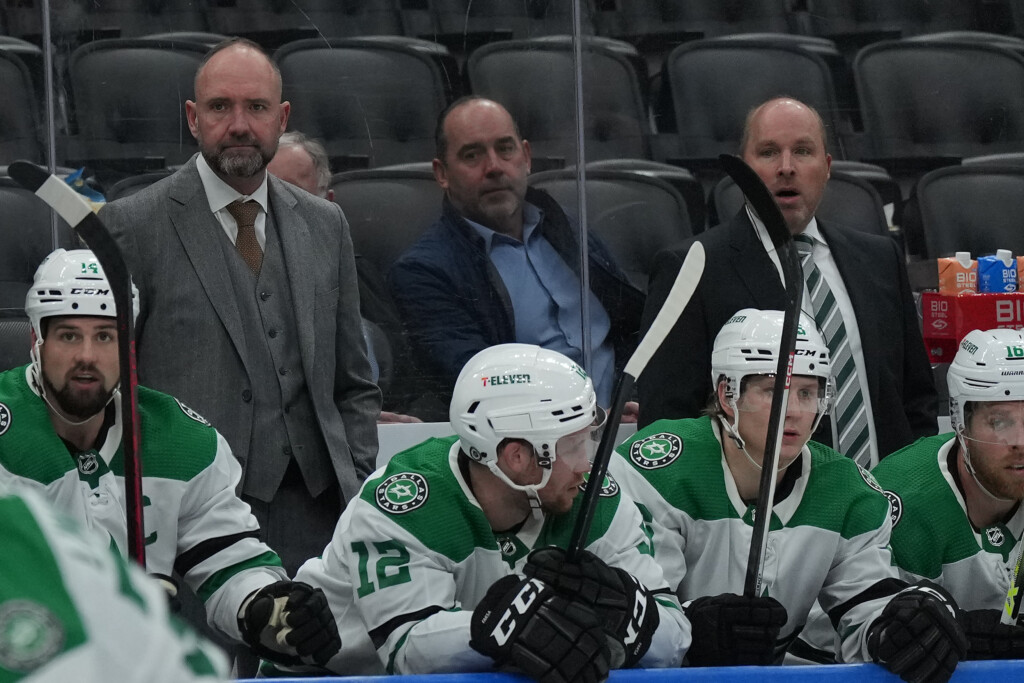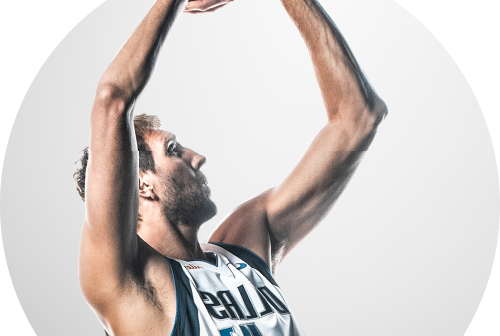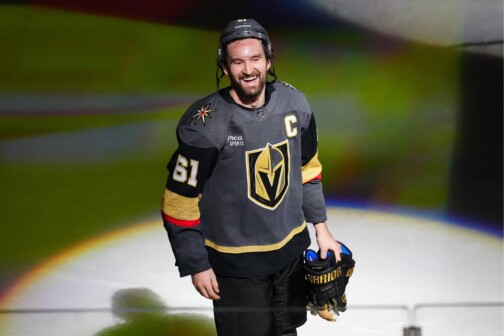Monday night Jamie Benn played his 1,000th NHL game in a 3-2 win against the Anaheim Ducks. All of them have come with the Stars, making Benn the 76th player in NHL history to reach the milestone without changing rosters and just the second to do so in Dallas after Mike Modano.
Benn has been a face of the franchise since 2009 in an era when the face behind Dallas’ bench has changed frequently. In 14 seasons, he has played for seven head coaches. In many other NHL cities, Lindy Ruff’s four-year portion would be a blip on the radar. In Dallas, it was a relative eternity.
Enter Pete DeBoer, Benn’s newest and potentially final head coach. Perhaps more than anyone other than Benn himself, DeBoer deserves credit for engineering this season’s so-called “Bennaissance,” in which the Stars captain is on pace to record 70 points for the first time since 2018. It’s one of many areas that the 54-year-old coach has transformed on this roster in a season that has Dallas atop the Central Division and on pace for its first division title since 2015-2016.
DeBoer elevated Benn by reducing him. Benn’s ice time has been slashed below 16 minutes per game for the first time since his rookie season, leaving him in a supporting role alongside rookie Wyatt Johnston.
In theory, that’s a simple tweak. In practice, messing with a captain’s role can be a precarious game. DeBoer readily admits he didn’t know how well the concept would take. Decades of dealing with professional athletes has taught him how ego and understanding don’t always work hand in hand.
He is well aware of how the idea could come off: “I come in and take an Olympian, a former scoring champion, and I put him on the third line with a 19-year-old rookie and cut his ice time.”
The reality?
“Not one complaint,” DeBoer says. “Not a whine. Not a sideways glance. I was ready for those. And, you know, you can probably count the players on one hand with his résumé that would have handled it that way. That’s what makes him special.”
The head coach is quick to credit Benn’s selflessness for making the shift work.
“I knew he was a leader, but I didn’t know how unselfish of a leader this guy was,” he says. “I mean, every conversation you have with him is about what’s best for the team. You really learn quickly it’s not about personal stats or personal production.”
But plenty of other names on that long list of head coaches could have approached Benn about such a plan. DeBoer was the one who did. That experience and those conversations with Benn became his skeleton key to unlock the rest of Dallas’ roster on both a schematic and personal level.
This is what De Boer has done everywhere he’s gone: he tinkers. He tweaks. “This is my fifth stop and the other four have all been in similar situations, taking a team that has stumbled a little bit or has a flaw that they are trying to fix,” he says.
The Stars’ flaw was on offense. DeBoer inherited a team that had structure, but it relied too heavily on keeping pucks out as opposed to putting them in the net. DeBoer approached it as a rewiring more than an overhaul. The top line of Jason Robertson, Joe Pavelski, and Roope Hintz, which combined for 105 of the Stars 223 goals in 2021-2022, was told to continue being themselves. Why fix what wasn’t broken?
From there, he placed an onus on direct communication with the forward core to focus more on possession than puck location. The two prior coaching staffs preached strategic dump-and-chase: put the puck to a soft area, then go get it. DeBoer has essentially told the team to simply take it there.
DeBoer has also worked on meshing a team that spans generations, something he credits to Benn, Joe Pavelski, and the rest of the Stars leadership. His early conversations with Benn were the opening he needed as a coach to learn the rhythms of his new team.
“I think you need to tap into that leadership, and no one knows the team better than Jamie,” DeBoer said.
DeBoer also did his homework before meeting each player. For example, when it became clear that Johnston had a role to play on this team, DeBoer reached out to Bill Bowler, the general manager of the Windsor Spitfires, Johnston’s OHL team, to pick his brain on how to communicate best with the teenager.
(He also wasn’t afraid to lean on some family scouting, too. “My dad lives a mile from the Windsor arena … and when I took the job he was the first one to tell me, ‘You know what? This kid has a special effect on the game,’” DeBoer says. “He was right.”)
Perhaps the most important connection that DeBoer made—and, more importantly, didn’t mess up—was with Robertson, his budding superstar. The 23-year-old missed all of training camp and preseason as a restricted free agent negotiating his new contract. He joined the team right before opening night, which took away a crucial runway to bond with his new coach. But DeBoer leaned into the MVP candidate’s tendencies.
Roberton’s nickname, “Robo,” is oddly fitting. He’s robotic in how he takes in information: he watches every shift immediately after he gets to the bench on the iPad. Some coaches rebel against the practice; they’ve been banned from the benches in Philadelphia. DeBoer opted to lean into it.
“This generation has grown up with that,” DeBoer said. “And there’s an expectation level of these young players when they get up here that they have those resources at their fingertips. Can it get in their way? Sometimes it probably can. And I think it’s our job as coaches, if it does, to step in or suggest that maybe that’s happening.
“But, you know, it’s a fine line to walk because it’s what makes them comfortable, and making a player as comfortable as possible to perform is part of my job.”
And with 67 points in 52 games plus an All-Star appearance, Robertson seems pretty comfortable.
Add it all up, and the Stars are ninth in the NHL, averaging 3.35 goals per game. Last season they were 21st in the league at a clip of 2.84 per contest, the worst of any playoff team. Dallas’ attack is humming well ahead of schedule.
“It’s typically the two- to three-month timeline to get stuff running and implement that change,” he says. “This group, this team, started quicker than other groups.”
That has DeBoer sitting pretty in the first season of his four-year deal. Still, he understands better than most how fickle the NHL can be. You don’t get to your fifth head-coaching job without losing the other four. Chances at the ultimate goal can be elusive. He reached the Stanley Cup Final 2012 with the New Jersey Devils and again in 2016 with the San Jose Sharks, losing both series in six games.
DeBoer, who lost to the Stars in the Western Conference Final with the Vegas Golden Knights in 2020, knows his mandate in Dallas isn’t to just get in the playoffs. It’s for the Stars to get back to the force they once were.
He shared that message with Benn before the season. The captain responded by trusting him to cut down his minutes. So it was only fitting that on the night when Benn was celebrated for that 1,000th NHL game, DeBoer quietly notched his 542nd career victory, which moved him into the top 25 in NHL history. You only read about one of those milestones. But if the Stars win that long-awaited second Stanley Cup, it will be because DeBoer took them there, in obvious and understated ways alike.
Author







